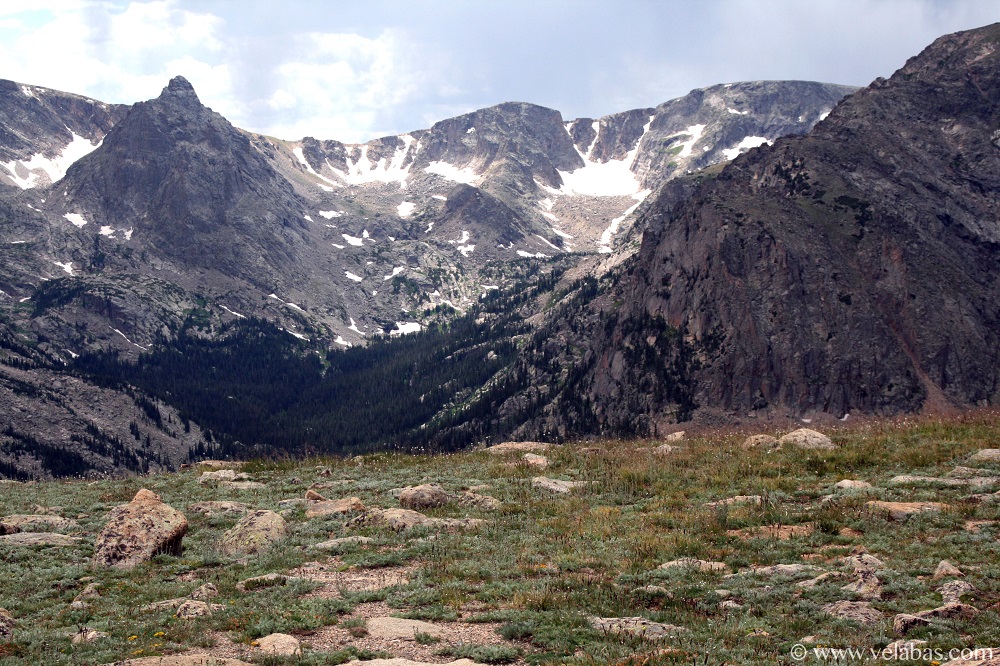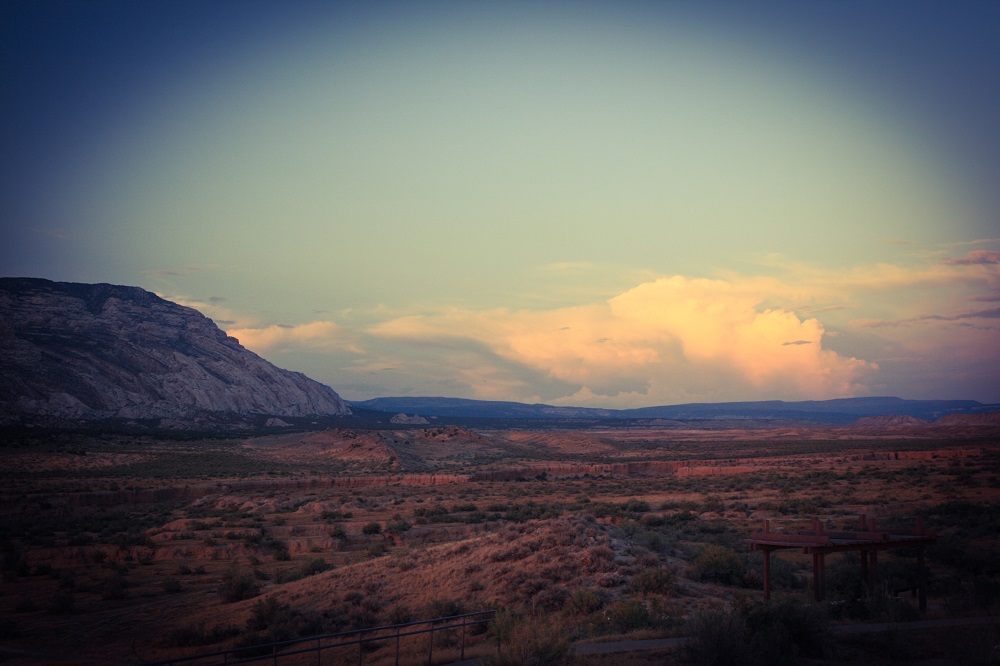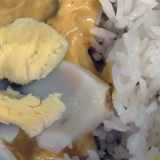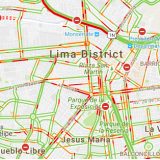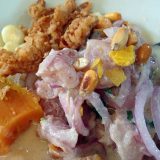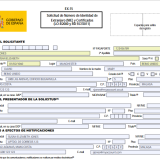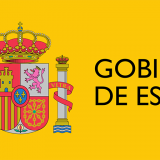It was early September when we found ourselves traveling across the Puget Sound on the Edmond’s Ferry. Across the way was the Olympic Peninsula, where in Port Townsend the 38th Annual Wooden Boat Festival would take place that weekend. My uncle lived there, and we were heading to his forest home. In the passenger’s seat I let my forehead rest against the window. All this had happened so fast.
The Painters
Only a few weeks ago I was in my empty childhood home, alone except for the Polish painters. I spoke with them, and wondered about their lives. They had immigrated from Poland years before to join Chicago’s substantial Polish population. One of them was Jozef, the younger one, smiling all the time with paint splattered in his coarse beard. And I could see within his blue eyes stories I wish I knew, because now it was my family’s turn to uproot and move to a new city.
Bits of furniture that my parents had not packed into their moving van had been gathered in the living room and covered with plastic. It used to be a mustard-yellow room but now it was white. The dining room was a deep, wine red–now white. Where my father kept his many books had lost its green to white. Teal in the kitchen-covered with white. The Poles’ paint reset our house for the next family, and it felt like memories were wiped for the blank slate.
That’s how it is in the United States. A house is an investment insofar as it holds a mortgage, but it’s easy for Americans to move away. I had been in Latin America for so long, where cinder-block homes were veritable investments not just for the money, but for the physical and familial durability of the connections made within. This was manifest in the fact that these cinder-block houses were not as often demolished as homes in the US are.
“Here, you can have this,” I said to Josef, handing him a 2-liter bottle of 7-Up.
“Don’t want?”
“I’m leaving now,” I said. “Here, you can have this stuff too, if you want it.”
“What this?” he asked, pointing.
“Those are deviled eggs. They’re good.”
“Ya. Thank you much.”
I didn’t give him the Pringles, or the Dr. Pepper. These I gathered under my arm and brought them outside to the car. I started the ignition and pulled away from the home I grew up in, perhaps for the last time.
Roadtripping
It took me 5 days to drive across the country. I was free to help my parents deliver their car from Chicago to Seattle because I do not follow a regular work week. They’d pay for gas and Pringles.
I slept in the car, cramped against the gear shift and a low steering wheel. Rain in Iowa. Hail as I sliced through air across Nebraska. Finally in Denver, I was able to rest with the family of a friend.
Then I went through Boulder, the Rocky Mountain National Park, and stunning Route 40.
I was following the old migratory routes of countless caravans. The old Oregon Trail. Indians and the wild west. It almost made me sad to think that such adventure is rendered irrelevant by our paved roads and telecommunications infrastructure. Perhaps illegal immigrants have the adventurous sensation when they move through these lands. I thought back to all the people I’d met, especially in Mexico, who had spent years in the US and yet did not learn to speak English–probably because there was safety staying among other Latin Americans.
Utah and Salt Lake City, Idaho and the old crossings where covered wagons forded the river with their oxen; then eastern Oregon, the Colombia River Gorge, Mt. Saint Helens…
I was back in the state of my Alma Mater. After years of vagabonding, the feeling was one of coming full-circle. I had nothing to account for it except this website and the myriad ways people who I would never have otherwise met traveling any other way had affected my character. On the final stretch north to Seattle I picked up a hitchhiker, who spoke to me of God and Victoria, BC. He was a smiling, youthful traveler. I saw myself in him so many years previous, and I bought him a meal at a roadside diner.
Port Townsend
We debarked the Edmond’s Ferry, and started north. Behind us we could see Mt. Rainier dominating the horizon, and small black splotches marking Seattle’s financial district. We disappeared into the forest, and an hour later emerged on the old fishing village of Port Townsend. Just outside of town, the car pulled to a stop in front of my uncle’s home.
“There’s the traveling man!” said my uncle when he saw me. He lumbered over and wrapped me in his bear hug.
“Hey Unc,” I squeaked.
“Welcome. Be at home,” he said. “Mi casa es tu casa.”
It was a lovely home to be welcomed into, because he had built it himself. He’s a master carpenter, and had established himself out here many years before, having been the first of the family to come west. I always marveled at the fact that he had studied business, but found his life calling as a man of action who would use his own bare hands to make a living. I admired him for his clear vision of who he was and what he wanted to do. I instead fall among the hordes of young people who belong to a digital age in which solid roots are more difficult to lay down. I can imagine a thousand lifestyles for myself, and happiness in each of them. It makes it hard to choose. I prefer sampling them all and letting my imagination do the rest.
The next day we went into town and down to the docks. If we hadn’t known about the wooden boat festival, it would not have been hard to guess with all the activity around the moored sailboats and frigates.
“That’s the pinboard there. Behind you, grab that line.”
“This one?”
“No the one beside it.”
“This?”
“Hand that to me.”
We were aboard one of the boats now, sailing in the bay, and I was trying to help with the rigging. It was a sleek wooden schooner owned by one of my uncle’s friends, a slim man with a tie-dye sleeveless shirt and a broken cap matting down unruly silver hair. Some of the other men aboard were misc crew, friends of friends of friends. Between the crowded bay and the crowded boat there was little space for 9 people.
I saw my parents on the fantail bench, above them the schooner’s heavy boom. The sun skipped over the waves and reflected off their sunglasses. I retreated from the crowded cockpit to the bows, where the jib’s shadow was cast on deck. I lay there and thought back to all the months I’d spent on the sea trying to get to Asia. And now here I was, back where I’d started. What freedom, isn’t it? What mobility. There were my parents at the back of the boat, for whom moving across the country was changing everything for them, and here I was, a chameleon of geography.
Our terrific teak hull careened close to others. Some of the boats were humongous. One, which looked like a pirate ship, fired off a few blank rounds from its rear-mounted hand canon. Captain said they’d used that boat in the Pirates of the Caribbean films.
There were so many boats that when finally we decided to head back into port, it was quite crowded and there were a few near-collisions.
Once moored again at the dock, we said our goodbyes to the captain and crew, and meandered off into the mass of people.
Enthusiasm was bright in many of the faces I saw. The Port Townsend Wooden Boat Festival was one of the world’s premier gatherings of wooden boats. Enthusiasts came from all over the world. I should consider myself lucky to have cruised on one out in the bay. But I felt outside of myself and entirely disconnected from the festival.
My attention was again on my parents. I wondered what was going through their minds. Were they here now? I mean, were they grounded here in the northwest enough to enjoy these boats? I’m so used to travel and changing my daily circumstances. They moved because of need. And it was the first time they’d moved from an established home in over 20 years. Many of my friends are established, or they are establishing the same kind of roots that my family has just severed. That’s the norm. Settling. That’s the goal, even. But how is their move different from so many migrations throughout the world? Motivations might be the same but in contexts of utterly different standards. In the geographic northern hemisphere, many displace themselves with moving vans, packing their things and going from one house to a new one in a matter of days. In the geographic south if someone’s moving, perhaps theirs is a drawn-out exodus from their home because of political or economic strife that we cannot begin to comprehend from home, lest we give it only brief attention.
I watched the multi-million dollar boats with mixed feelings of awe and shame. Beautiful, pricey. Elegant, garish. Impressive, privileged.
These boats represent for so many people a way of seeing the world. A mobility that few modern circumstances can afford. But I knew their secret. I’ve seen where these boats go. They go to expensive marinas, or to secluded harbors. They don’t put you on an even keel with the people, despite their build. How ironic, after all, that after this great migration to the west coast, I am reminded once more of the road.
There are people I need to meet. There are stories I need to tell.


